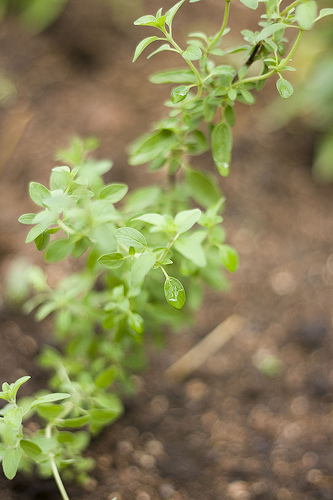With November here, most people are aware that “Movember” is also in full swing, promoting prostate cancer research, among other things. What isn’t so common knowledge is the fact that two rather yummy research endeavours are showing promise in the field of prostate cancer treatment.
Already well known for being an antioxidant, oregano was used in one study to test its effects on prostate cancer cells. Researchers tested carvacrol, a component of oregano, in varying concentrations against human prostate cancer cells for different time intervals. Amazingly, they discovered that the carvacrol completely wiped out the cancer cells!
From their research, the team found out that the carvacrol actually caused apoptosis, or ‘cell suicide’, in the cancer cells. It is still in its beginning stages but “if the study continues to yield positive results, this super-spice may represent a very promising therapy for patients with prostate cancer,” says Dr. Bavadekar, the lead researcher. Watch here as the SourceFed team talks about this new research:

The next study looks into the effects of a compound found in red wine and grape skin on prostate cancer cells. Previous studies have shown that this compound, resveratrol, may have health benefits concerning heart health and stroke prevention. In this study, researchers found that the compound caused the prostate cancer cells to be more vulnerable to radiation. Watch here as the MU News Bureau talks to the researchers about their discovery:
The resveratrol causes the cancer cells to express two proteins, perforin and granzyme B, which work together to cause the cell to weaken. When combined with radiation, more cancer cells were killed than with just radiation alone.
The drawback to this discovery is that the body metabolizes resveratrol very efficiently. This means that a very high dosage would need to be consumed in order for the compound to be effective at the tumour site. Due to this, researchers are looking into alternate delivery methods, as the treatment is otherwise promising.
I believe that both of these studies show a lot of potential and are particularly interesting because the compounds used are naturally occurring. It makes me wonder about all the other naturally occurring treatments that may still be out there. Who knows, maybe the next promising cancer treatment will be from pomegranates or blueberries!
-Karly Stillwell



